No deaths or injuries actually occurred but for a few moments it sure looked like they might.
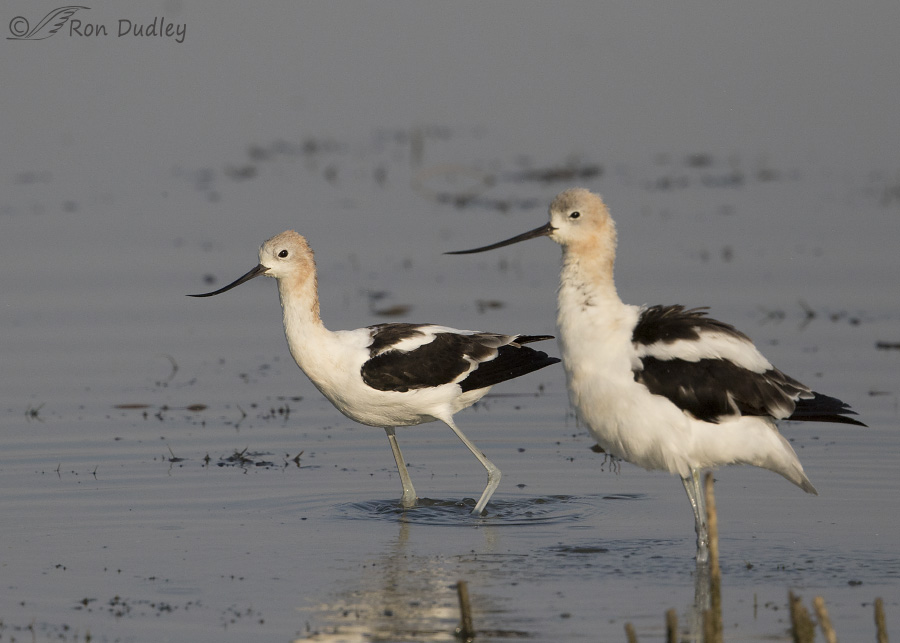
Three days ago at Bear River Migratory Bird Refuge I had my lens trained on these two American Avocets mostly because they were close. I’m not fond of messy water like this but you never know when an interesting behavior might break out and these two didn’t disappoint.
This shot illustrates the primary physical differences between male and female. The smaller female (the bird on the left) also has a shorter bill that is more recurved than that of the male. I was focused on the female so the male isn’t quite sharp.
I had noticed no initial tension between the birds when suddenly…
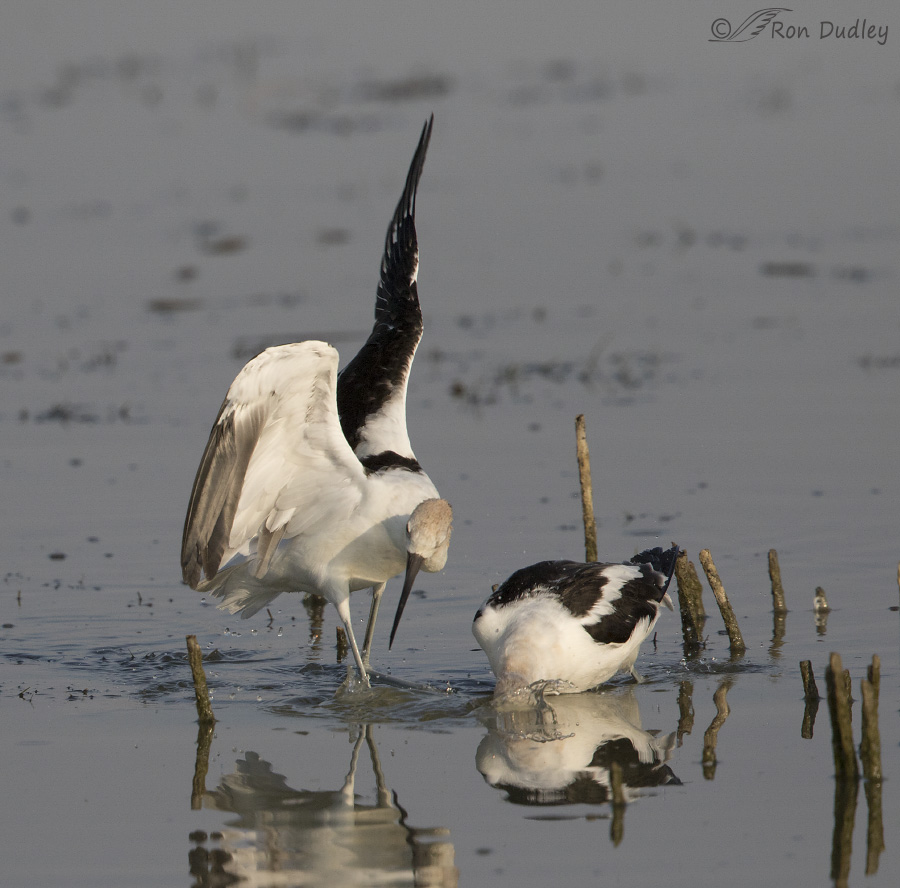
a furious and serious fight broke out. The female on the left seemed to be the instigator and the male, perhaps to protect his head and eyes, immediately plunged his head and neck underwater.
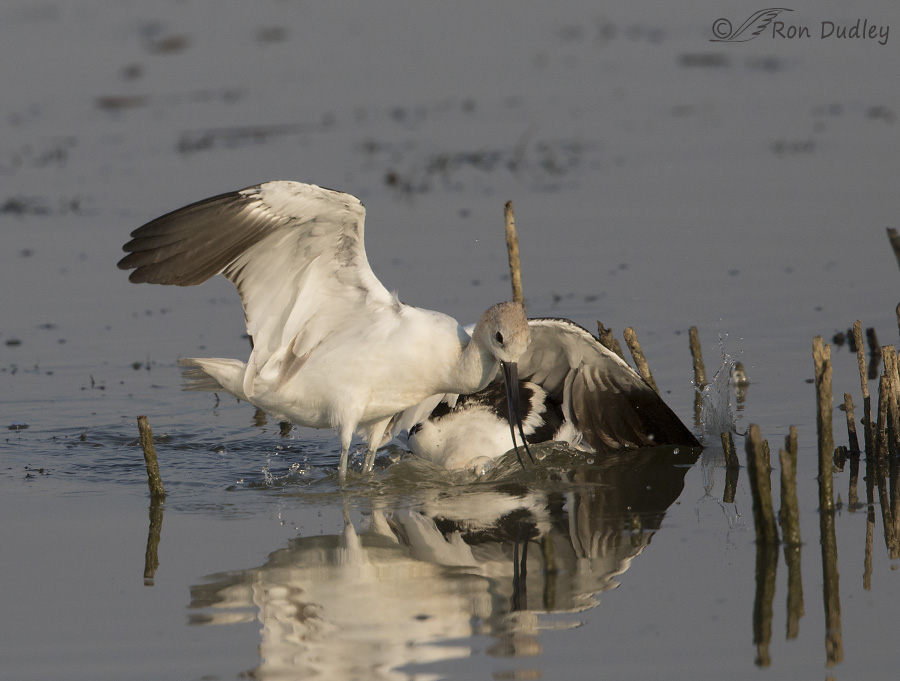
He held it there for 6 frames (fired in a burst) as the female continued to be the aggressor.
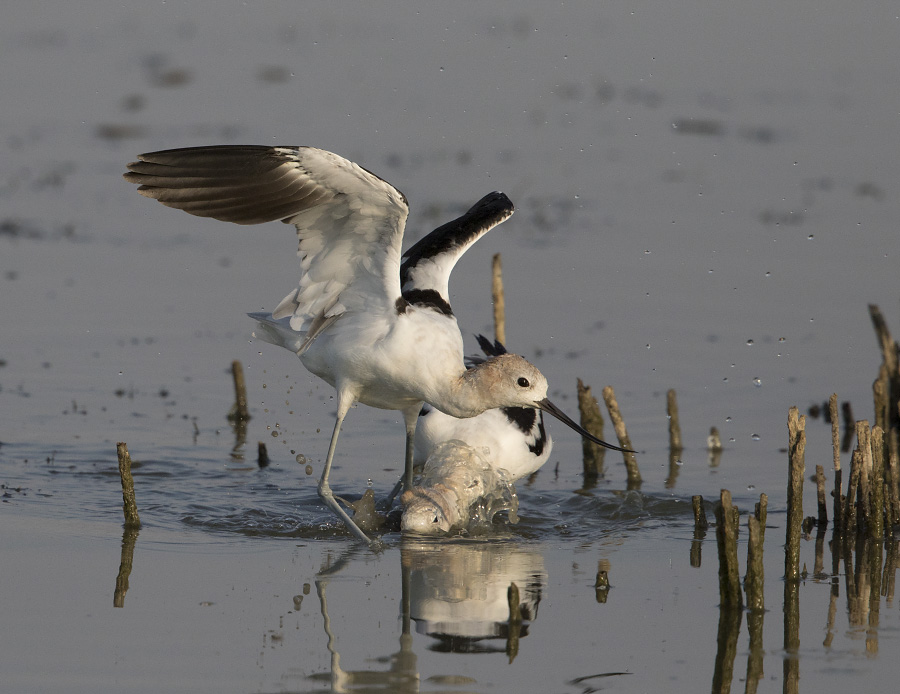
When he eventually started to lift his head out of the water…
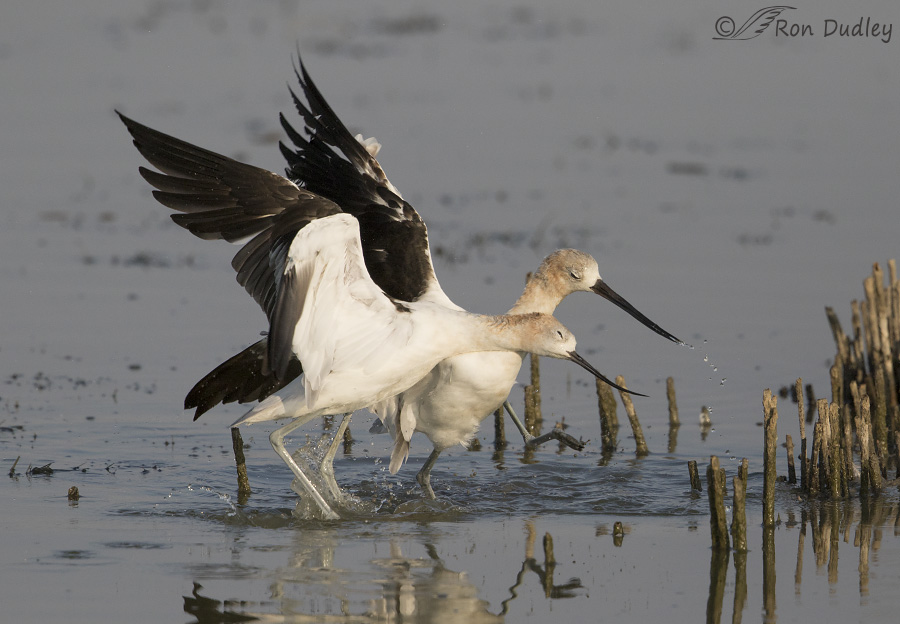
the smaller female continued to push her luck.
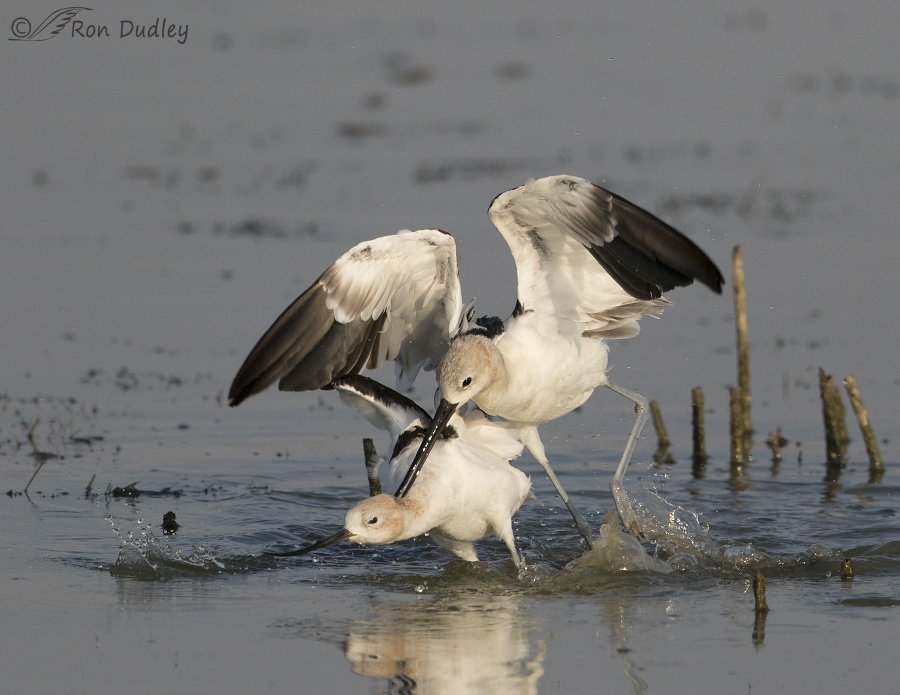
But now as the male turned the tables on her there was going to be hell to pay for her cheekiness.
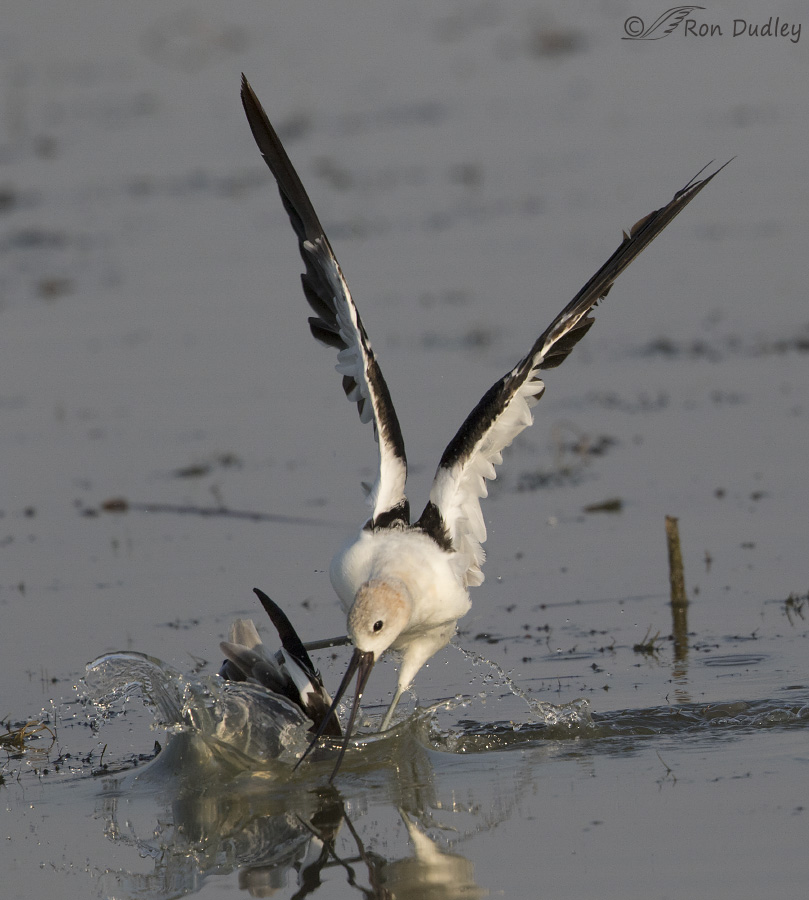
Now it was the female’s turn to plunge her head underwater for protection as the male attacked.
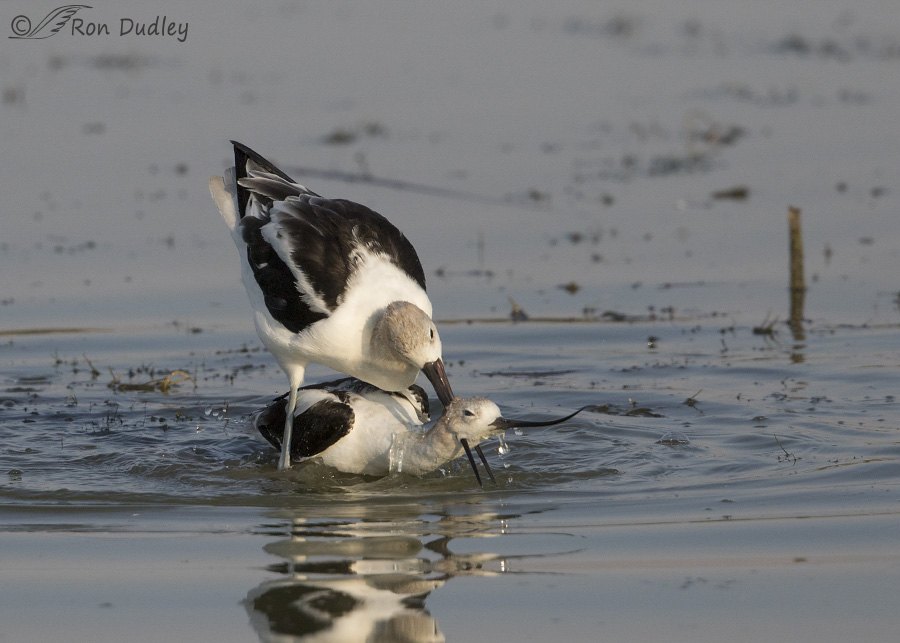
He was apparently determined to exact his revenge. He grabbed her upper neck with his bill and held on for some time as she struggled.
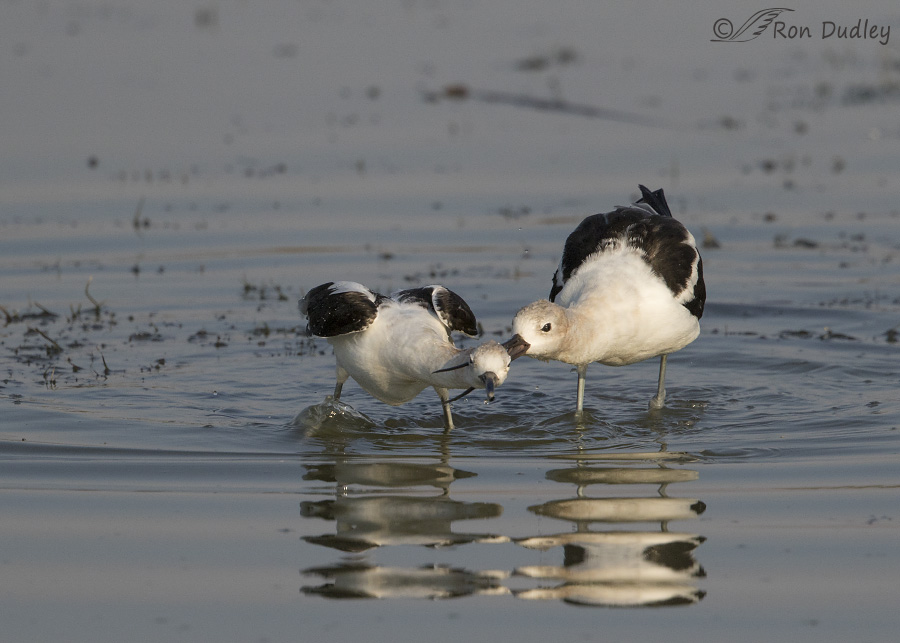
He had her in this “death grip” for long enough that I was able to get 21 shots of it.
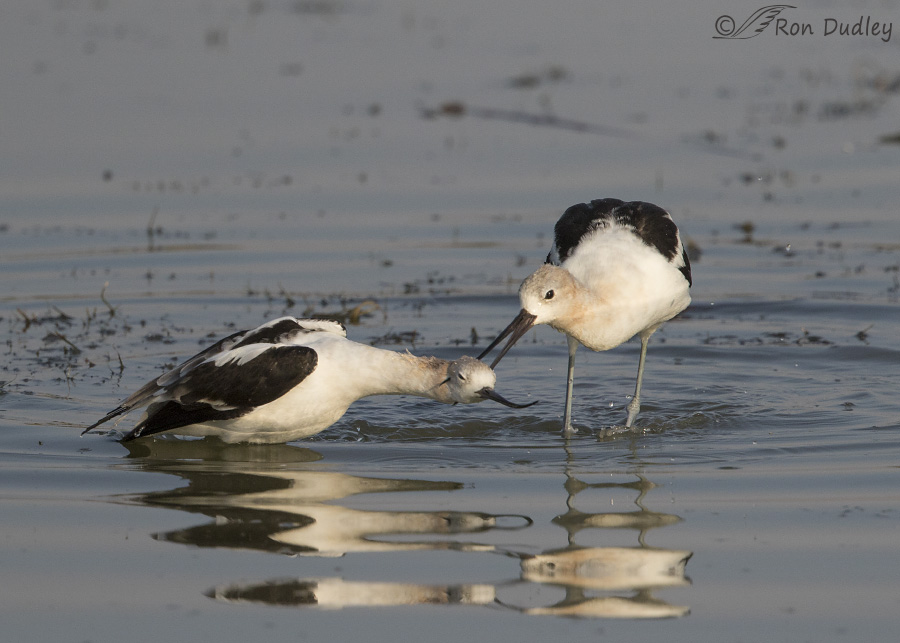
She struggled to escape but he was having none of it.
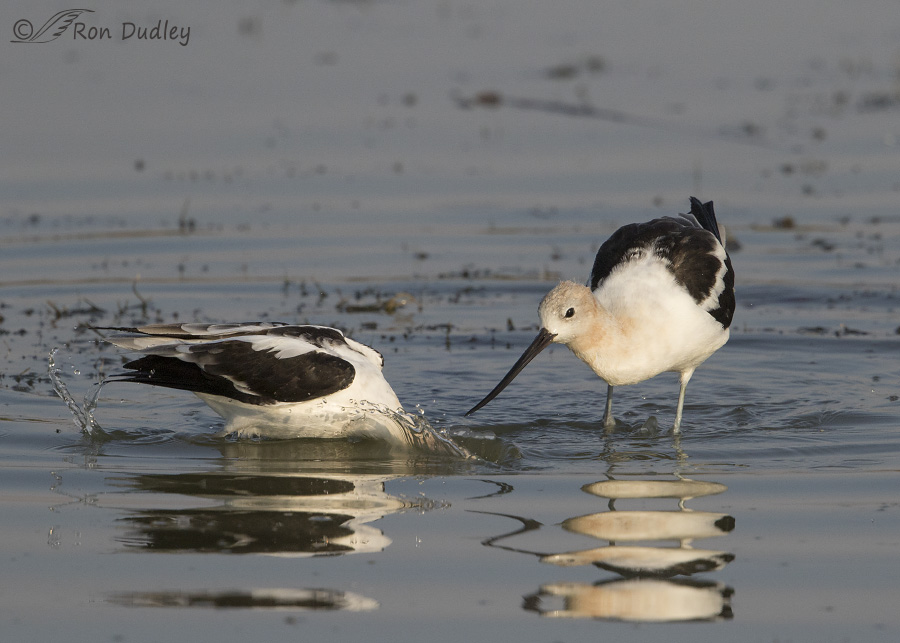
When she finally did get away she plunged her head underwater again for an instant…
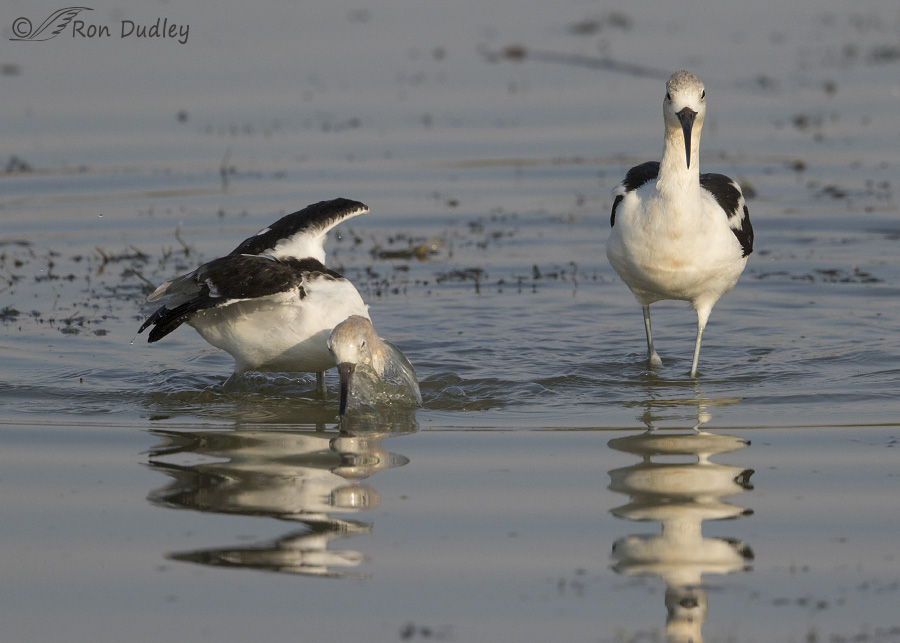
but when she realized she was actually free…
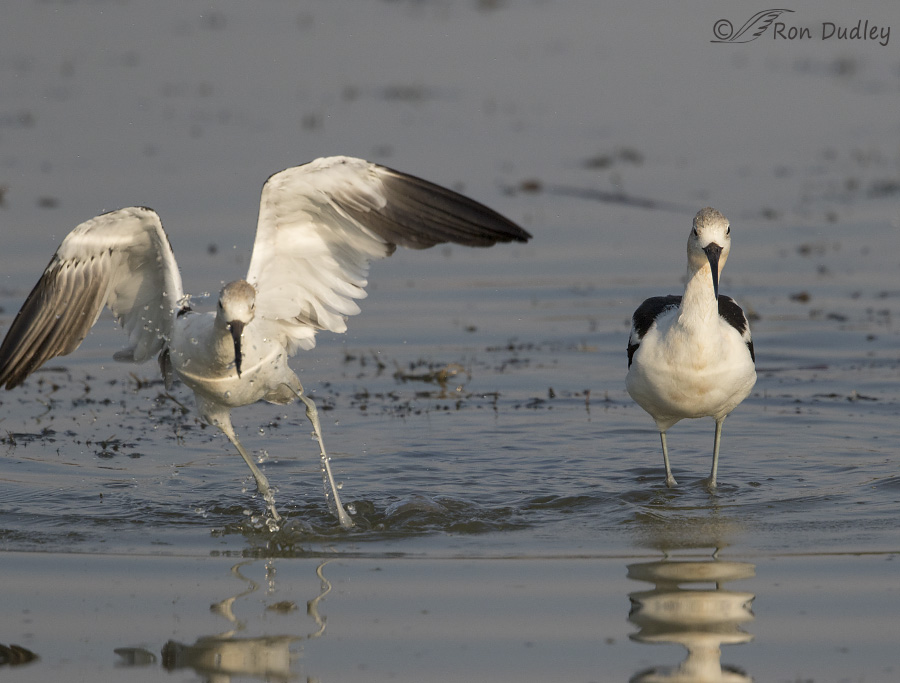
she wasted no time in getting the hell out of Dodge.
I have no idea why they were fighting. It isn’t breeding season so perhaps they were fighting over feeding rights. But soon after these shots were taken both birds went back to feeding quite close to each other. Go figure…
I LOVE interesting behaviors, whether I understand them or not.
Ron
Note: Techs for each of these images were: 1/5000, f/6.3, ISO 640, Canon 7D Mark II, Canon EF 500mm f/4L IS II USM + 1.4 tc


Ron, I just reviewed your avocet mating photos from Mar.23/16. That behavior seems related to your current photos.
there’s still some “breeding color” in the current avocets’ heads. Maybe there’s still some breeding behaviors that are no longer connected to mating. They’re just winding down…
SUE
I love your photography!
Who knows, Sue. Birds sure can be hard to definitively figure out, can’t they?
Typical brother sister fight. That’s MY worm. No it’s mine! I’m telling! I’ll tell first…ad nauseum.
It sure is possible that they’re siblings, Arwen.
Wow, very interesting images and narrative Ron. The look on the female’s face as she was held by the male’s beak is telling
Thank you, Ed.
Pecking order is sooooo much more than a phrase isn’t it? I am endlessly fascinated by behaviour. And the parallels between the ‘lesser species’ and us.
Our cockatoos frequently drag the pigeons off the feeder by a wing, or tail feathers. And hold it there dangling in mid air for a time before letting go…
Sounds like your cockatoos have a real attitude, EC!
Ron, I won’t comment on the behavior to be PC but your narrative is frequently the best part of your posts. Entertaining to say the least!
Best,
Stephen
Your comment about my narrative means a lot, Stephen. Thanks!
Wow!!!!! You are either the luckiest or most persistent photographer I know. Wow!!
Maybe just a little bit of both, Marina.
Interesting series and comments…sounds like she got what was coming to her! We have the “Mean Mourning Dove”, who lands almost on top of other birds, doves included, squirrels and chipmunks, foraging under one of our feeders, scaring them away. He/she doesn’t seem to have a mate…probably too mean to “marry”!
Thank you, Patty.
Fascinating behavioral series, Ron. I frequently see Mourning Doves using the raised wing to hold ground under the bird feeder, but the Avocets have taken it to a whole new level! Thanks for posting!
Yeah, those doves are infamous for slapping their opponent with the raised wing but I didn’t see any wing-slapping here. I think avocets prefer to use that long, sharp bill. Thanks, Diane.
Great shots, very interesting and what a wonderful set of behavioral images!!
Thanks for sharing..
Thanks, Dick.
Amazing behavioral shots Ron! Thanks for sharing!
Charlotte Norton
I’m glad you enjoyed them, Charlotte.
It must have been fun to watch these two, not to mention suspenseful. I’m sure glad I wasn’t the one in the male’s death grip! We’ve been watching Sanderlings, and they seem to be in fighting mode also. We’ve seen two of them actually fighting, but mostly they have been getting all puffed up and chasing each other as if they were Canada Geese (except the behavior seems to be pretty constant).
It was fun, Susan, but this kind of behavior happens so incredibly fast that you really don’t know the details of what’s happening until you get home and look at the images on a large screen. At the time I didn’t even know that the male had the female’s neck in his bill and I got 21 shots of it! All I saw through my lens was fast action, wings flashing and flying water.
I’m sure thankful for fast burst rates.
Interesting! Almost looked like he’d impaled her on his beak! Putting the head under water to hide/protect is also different.
Almost looked like he’d impaled her on his beak! Putting the head under water to hide/protect is also different.  Thx for sharing, Ron.
Thx for sharing, Ron.
This was the first time I’ve seen/noticed them putting their heads underwater for protection during a fight, Judy.
I just love your behavioral images, especially when there’s a series of them like this. Looking through a window into their everyday lives just makes my day. And from my perspective, this looks like another area where we’re more alike than different–domestic disputes happen periodically
Again, thank you for sharing that window!
We share that addiction to behaviors, don’t we, Laura? Thank you.